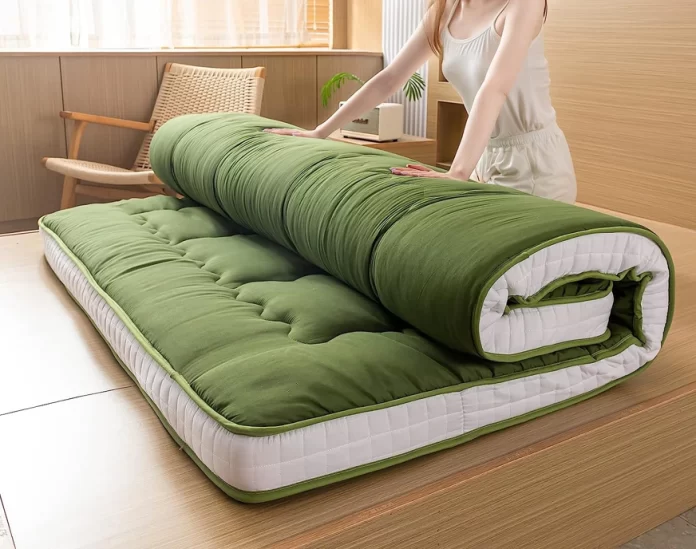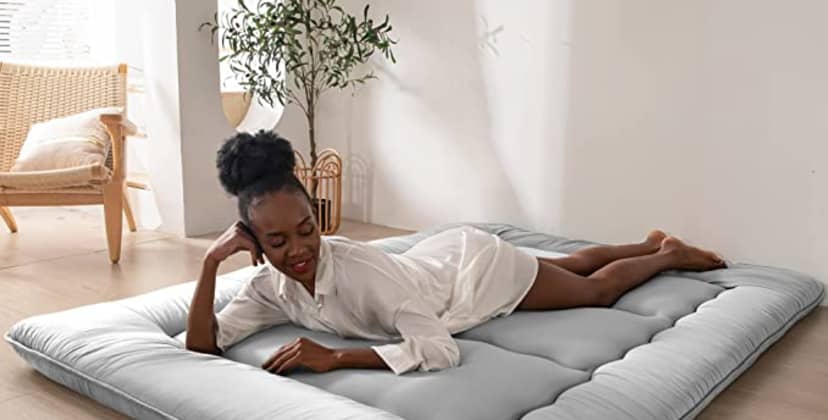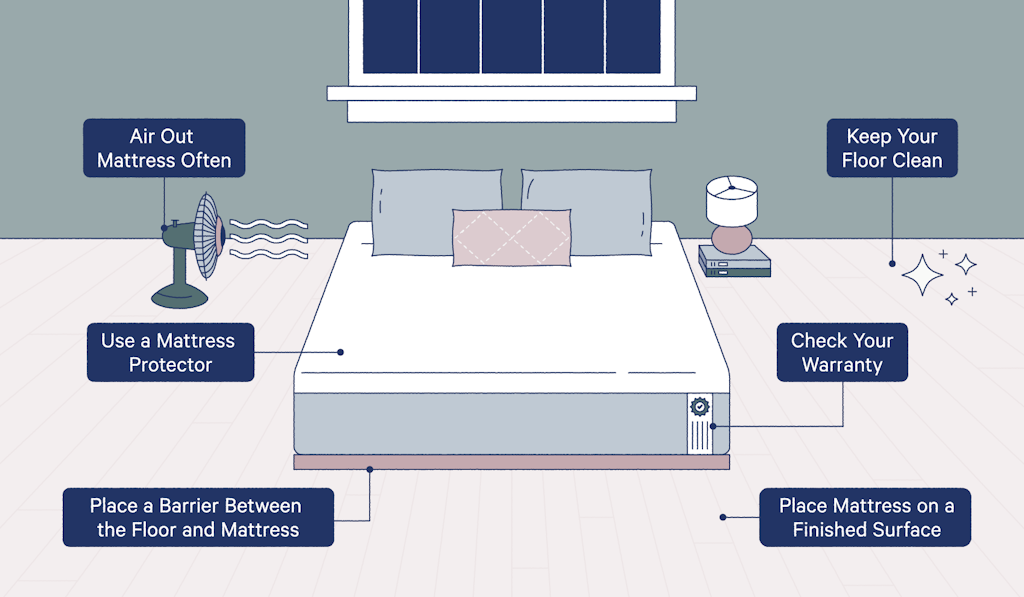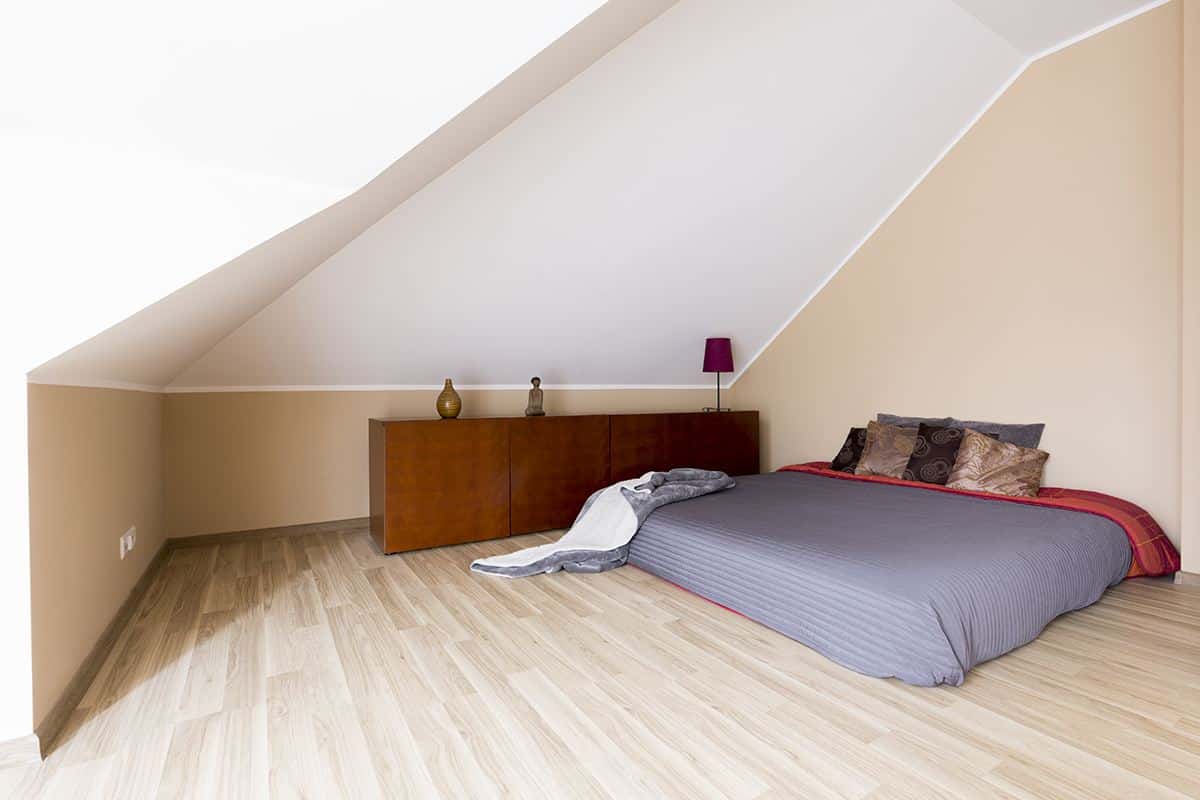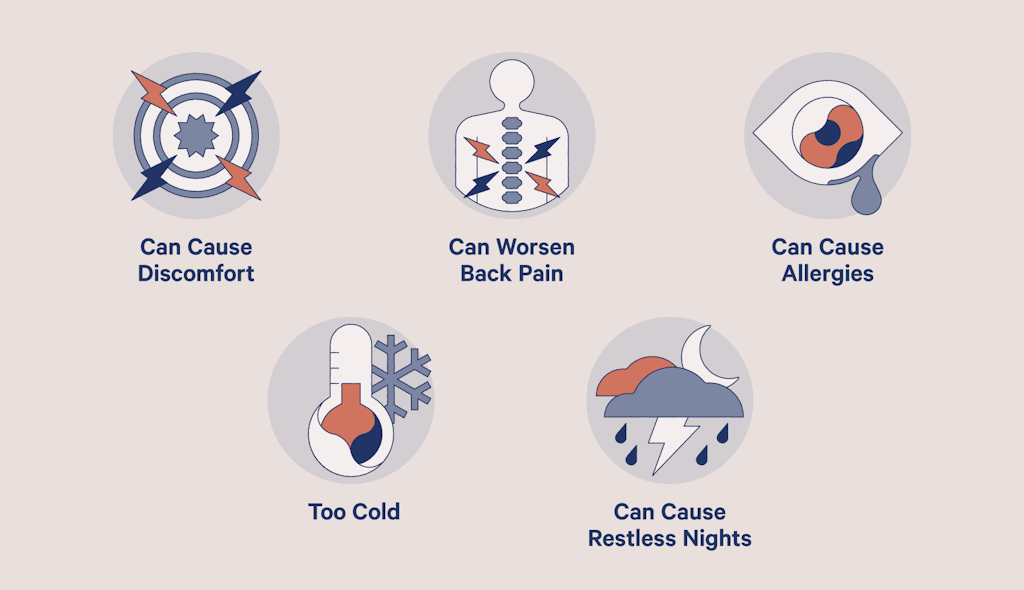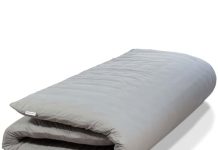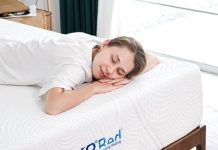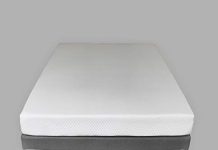Regarding the quest for a good night’s sleep, we all know that the right mattress can make all the difference. But have you ever considered ditching the traditional bed frame and opting for a floor mattress?
It may sound unconventional, but floor mattresses are gaining popularity for their potential benefits to our backs. In this article, we explore whether floor mattresses are good for our backs and explore why they might just be the secret to a well-supported spine. Say goodbye to sleepless nights and hello to a whole new level of comfort!
This image is the property of media.sleepfoundation.org.
Review contents
Benefits of Floor Mattresses for Back Health
Improved Spinal Alignment
One of the key benefits of floor mattresses for back health is improved spinal alignment. When sleeping on a traditional mattress, especially worn out or unsupportive, our spines can become misaligned throughout the night. This can lead to discomfort and even chronic back pain. However, with their firm and level surface, floor mattresses help keep our spines adequately aligned. This allows our back muscles and ligaments to relax and recover during sleep, promoting overall back health.
Allows for Natural Movement
Another advantage of floor mattresses is that they allow for natural movement during sleep. Traditional mattresses can sometimes restrict our movement, making changing positions and finding a comfortable sleeping posture difficult. However, floor mattresses offer a more stable and responsive surface, allowing us to shift and adjust our bodies freely throughout the night. This reduces the likelihood of waking up with stiff or sore muscles and promotes a more restful sleep.
Enhanced Muscle Activation
Sleeping on a floor mattress can also enhance muscle activation. The firmness of the mattress provides a slight resistance, encouraging our muscles to engage and support our bodies. This can be particularly beneficial for individuals with weaker core muscles, as it helps to strengthen and tone the abdominal and back muscles. Improved muscle activation supports overall back health and contributes to better posture and stability during waking hours.
Supports Proper Hips and Shoulders Alignment
Proper alignment of the hips and shoulders is essential for maintaining a healthy back. With their level surface and firm support, floor mattresses promote the alignment of these crucial body parts. By ensuring that our hips and shoulders are properly aligned, floor mattresses help to distribute our body weight evenly, relieving pressure on the spine and reducing the risk of back pain. This alignment also supports a neutral sleeping posture, minimizing strain on the back muscles and ligaments.
Improves Blood Circulation
Floor mattresses can improve blood circulation, which is vital for back health. Traditional mattresses can sometimes create pressure points and restrict blood flow, leading to discomfort and numbness. In contrast, floor mattresses promote healthy blood circulation by providing a firm and even surface that allows for optimal blood flow. Improved circulation not only enhances the delivery of oxygen and nutrients to the back muscles but also aids in removing waste products, facilitating faster recovery and reducing the risk of back-related issues.
Considerations for Back Pain Sufferers
Individual Variations
While floor mattresses offer numerous benefits for back health, it is essential to consider individual variations. Each person has unique needs and preferences when it comes to mattresses. Some individuals may find floor mattresses too firm and uncomfortable, while others may experience significant relief from back pain. It is crucial to listen to our bodies and adjust accordingly. If a floor mattress does not improve back pain or cause discomfort, it may be necessary to consider alternative options.
Mattress Firmness
The firmness of a floor mattress is another factor to consider for back pain sufferers. While a firm mattress can support spinal alignment, it may not be suitable for everyone. Some individuals may require a slightly softer mattress to alleviate pressure points and provide additional cushioning. Experimenting with different firmness levels can help determine the optimal balance between support and comfort for individual back health needs.
Supportive Accessories
Supportive accessories may be necessary to enhance the benefits of floor mattresses for back pain relief. A mattress topper or pad can cushion and alleviate pressure on sensitive areas. Pillows designed for back support can also be utilized to maintain proper spinal alignment while sleeping on a floor mattress. These accessories can provide a more comfortable sleeping experience and promote back health.
Sleeping Positions
Our preferred sleeping positions can impact the effectiveness of floor mattresses for back pain relief. While floor mattresses generally provide excellent support for back and side sleepers, they may not be as suitable for stomach sleepers. This is because sleeping on the stomach can strain the neck and lower back. If stomach sleeping is preferred, using a pillow or rolled-up towel under the hips can help maintain a more neutral alignment and reduce pressure on the back.
Existing Back Conditions
Individuals with pre-existing back conditions should take extra care when considering floor mattresses. While these mattresses can offer relief for some, certain conditions, such as herniated discs or spinal stenosis, may require different levels of support and cushioning. It is essential to consult with a healthcare provider or physical therapist before transitioning to a floor mattress, as they can provide personalized recommendations based on specific back conditions.
This image is the property of i0.wp.com.
Effectiveness of Floor Mattresses for Back Pain Relief
Scientific Studies and Research
Numerous scientific studies and research have explored the effectiveness of floor mattresses for back pain relief. A study published in the Journal of Manipulative and Physiological Therapeutics found that sleeping on a hard surface, such as a floor mattress, was associated with reduced pain intensity and disability in individuals with chronic low back pain. Another study published in Applied Ergonomics concluded that mattresses with moderate firmness, similar to floor mattresses, resulted in less back pain and better sleep quality than softer mattresses.
Customer Reviews and Experiences
Customer reviews and experiences also reflect the positive effects of floor mattresses on back pain relief. Many individuals report improved comfort, reduced back pain, and overall satisfaction after switching to a floor mattress. They highlight the supportive nature of floor mattresses and the noticeable difference in their sleep quality and back health. However, it is essential to remember that personal experiences may vary, and what works for one person may not work for another.
Comparisons with Traditional Mattresses
When comparing floor mattresses with traditional ones, individuals often find that they provide better support and relief for their back pain. Traditional mattresses, especially those that have started to sag or lose their firmness, can exacerbate back problems and cause discomfort. In contrast, floor mattresses offer a consistent and firm surface that promotes proper spinal alignment and reduces strain on the back. This can improve sleep quality and reduce back pain for many individuals.
Chiropractic and Medical Perspectives
Chiropractors and medical professionals often recommend floor mattresses for back pain relief and overall back health. They recognize the benefits of a firm and supportive surface for maintaining proper spinal alignment. Chiropractors, in particular, emphasize the importance of spinal alignment in preventing and managing back pain. They often recommend floor mattresses as an alternative to traditional mattresses, as they provide the necessary support and promote a healthy sleeping posture.
Alternatives to Floor Mattresses for Back Support
Memory Foam Mattresses
Memory foam mattresses are a popular alternative to floor mattresses for back support. They adapt to the body’s contours, providing personalized support and pressure relief. This can benefit individuals with specific back conditions or who prefer a softer sleeping surface. Memory foam mattresses also minimize motion transfer, making them suitable for couples. However, depending on their back health needs, some individuals may find memory foam mattresses too soft or lacking support.
Latex Mattresses
Latex mattresses are another alternative that offers excellent back support. They are known for their durability, responsiveness, and breathability. Latex mattresses balance support and comfort, allowing for proper spinal alignment. They can also be an excellent option for individuals with allergies or sensitivities, as they are naturally hypoallergenic and resistant to dust mites. However, latex mattresses may cost more than floor mattresses or other alternatives.
Hybrid Mattresses
Hybrid mattresses combine the benefits of different materials, typically combining an innerspring system with layers of memory foam or latex. These mattresses offer the support of traditional coils along with the comfort and pressure relief provided by foam or latex layers. Hybrid mattresses can be an excellent choice for individuals seeking a balance between support and cushioning for their back health. However, it is essential to carefully consider the specific composition of the hybrid mattress to ensure it meets individual needs.
Adjustable Air Beds
Adjustable air beds provide customizable support by allowing users to adjust the firmness of the mattress to their preference. They typically consist of air chambers that can be inflated or deflated using a remote control. This feature is particularly beneficial for back pain sufferers who require varying levels of support based on their condition or comfort needs. Adjustable air beds also allow individual customization for couples with different back health requirements.
Orthopedic Mattresses
Orthopedic mattresses are designed to provide optimal support for the spine and back. These mattresses are often recommended for individuals with specific back conditions or requiring additional support. They can include features such as extra lumbar support, zoning for different areas of the body, and specialized pressure-relief materials. Orthopedic mattresses aim to promote proper spinal alignment and alleviate pressure on the back, contributing to improved back health.
This image is the property of casperblog.imgix.net.
Factors to Consider in Choosing a Floor Mattress for Back Health
Materials and Breathability
When selecting a floor mattress, it is essential to consider the materials used and the breathability of the mattress. Natural and breathable materials like cotton or wool can help regulate body temperature and prevent excessive sweating during sleep. A breathable floor mattress promotes airflow and prevents the accumulation of heat and moisture, which can affect sleep quality and overall comfort.
Firmness and Support
Floor mattresses come in various firmness levels, and choosing the right firmness is crucial for back health. The mattress should provide adequate support to maintain spinal alignment while allowing for comfortable pressure relief. Finding a balance between firmness and cushioning that caters to individual preferences and back health needs is essential.
Thickness and Cushioning
The thickness and cushioning of a floor mattress also play a role in back health. Thicker mattresses offer additional cushioning and can be more forgiving on pressure points. However, excessively thick mattresses may compromise stability and cause discomfort for some individuals. It is essential to consider personal preferences and specific needs when determining a floor mattress’s optimal thickness and cushioning.
Temperature Regulation
Temperature regulation is vital, especially for individuals who tend to sleep hot. Floor mattresses made with breathable materials and moisture-wicking properties can help regulate body temperature and prevent overheating. Additionally, some floor mattresses have advanced cooling technologies integrated into their construction, further enhancing temperature regulation and promoting a more comfortable sleep environment.
Maintenance and Care
Consider the maintenance and care requirements of a floor mattress before deciding. Some floor mattresses are easily foldable or rollable, making them convenient for storage or transportation. Additionally, mattresses with removable and washable covers are easier to keep clean and odor-free. Understanding a floor mattress’s specific maintenance and care instructions ensures its longevity and hygiene.
Budget and Affordability
Budgetary considerations are essential when choosing a floor mattress. While high-end models may offer additional features and advanced materials, it is possible to find affordable floor mattresses that provide excellent support and comfort. Researching different brands and models, comparing prices, and taking advantage of sales or promotions can help find a quality floor mattress that aligns with back health needs and budget constraints.
Tips for Using Floor Mattresses without Straining Your Back
Correct Sleeping Posture
Maintaining a correct sleeping posture is vital when using floor mattresses to avoid straining the back. It is essential to align the head, neck, and spine in a neutral position while sleeping. Back and side sleepers should position a pillow under their neck to maintain proper alignment. Stomach sleepers can place a pillow or rolled-up towel under their hips to reduce strain on the lower back.
Proper Pillow Placement
Using suitable pillows can also provide a comfortable and healthy sleep experience on a floor mattress. Pillows should adequately support the head and neck, aligning them with the rest of the spine. Individuals with back pain may benefit from using contoured or orthopedic pillows that provide additional support to the neck and promote proper spinal alignment.
Regular Stretching and Exercise
Regular stretching and exercise are essential for back health, whether sleeping on a floor mattress or any other surface. Engaging in gentle stretching exercises, such as yoga or Pilates, can help relieve tension in the back and improve flexibility. Strengthening exercises that target the core muscles can also provide better support for the back, reducing the risk of pain and injury.
Use of Mattress Toppers or Pads
Mattress toppers or pads can enhance comfort and cushioning on a floor mattress. Mattress toppers can provide an extra layer of cushioning and pressure relief, making the surface more forgiving and comfortable. Additionally, mattress pads can act as a protective barrier, preventing wear and tear on the floor mattress itself.
Gradual Transition Period
A gradual transition period can be helpful for individuals transitioning from a traditional mattress to a floor mattress. Start by spending a few nights on the floor mattress and gradually increase the duration. This allows the body to adjust to the new sleep surface and for any initial discomfort to subside. Giving the body time to adapt can result in a smoother transition and better overall back health.
This image is the property of www.mattressclarity.com.
Addressing Common Concerns and Misconceptions
Are Floor Mattresses suitable for all body types?
Yes, floor mattresses can be suitable for all body types. However, individual preferences and specific back health conditions may impact the level of comfort and support experienced. It is essential to consider firmness, thickness, and cushioning factors when choosing a floor mattress to ensure it accommodates individual needs.
Can sleeping on the floor lead to increased back pain?
Sleeping on the floor does not inherently lead to increased back pain. Many individuals report reduced back pain and improved health after transitioning to a floor mattress. However, ensuring that the floor mattress provides adequate support and aligns with individual preferences and needs for optimal comfort and back health is essential.
What about dust, allergens, and insects?
Like any other sleeping surface, floor mattresses can be susceptible to dust, allergens, and insects. Regular cleaning and maintenance can help minimize these concerns. Using hypoallergenic bedding, regularly vacuuming the mattress, and keeping the sleeping area clean and free from debris can help maintain a clean and healthy sleep environment.
Is it necessary to use a box spring or foundation?
Floor mattresses do not require a box spring or foundation to be effective. Using a box spring or foundation may alter the firmness and support of the floor mattress. However, individuals who prefer additional elevation or insulation from a cold floor may use a thin, non-spring foundation or a platform bed designed explicitly for floor mattresses.
Can floor mattresses provide long-term comfort and durability?
With proper care and maintenance, floor mattresses can provide long-term comfort and durability. Choosing a high-quality floor mattress and following the manufacturer’s guidelines for cleaning and care can extend its lifespan. However, it is essential to periodically assess the condition of the mattress and replace it if it no longer provides adequate support or shows signs of wear and tear.
The Role of Personal Preference and Trial Periods
Individual Comfort and Preferences
Personal preference plays a significant role in determining the ideal sleep surface and mattress type for back health. While floor mattresses offer a range of benefits, including improved spinal alignment and enhanced muscle activation, not everyone may find them comfortable. Listening to our bodies and prioritizing individual comfort is crucial when choosing a sleep surface. Personal preferences such as firmness, cushioning, and temperature regulation should guide decision-making.
Trial Periods and Return Policies
Many reputable floor mattress brands offer trial periods and return policies to allow customers to test the mattress’s suitability and comfort. These trial periods typically range from 30 to 100 nights, allowing individuals to sleep on the floor mattress and assess its impact on their back health and overall sleep quality. These trial periods can provide peace of mind and ensure that the chosen floor mattress meets individual needs and expectations.
Adjusting to a New Sleep Surface
Transitioning to a new sleep surface, such as a floor mattress, may require an adjustment period. The body needs time to adapt to the new support and feel of the mattress. It is expected to experience some initial discomfort or stiffness as muscles and ligaments adjust. However, with regular use and proper positioning, the body typically adapts, and the benefits of the floor mattress for back health become more pronounced.
This image is the property of casperblog.imgix.net.
Professional Recommendations for Back Health
Consultation with Healthcare Providers
Individuals experiencing back pain or seeking to improve their health should consult healthcare providers, such as primary care physicians or orthopedic specialists. These professionals can provide personalized advice and recommendations based on individual conditions, history, and specific back health goals. They can also help determine if a floor mattress or alternative sleep surface is appropriate for addressing back pain.
Collaborating with Chiropractors or Physical Therapists
Collaborating with chiropractors or physical therapists can benefit individuals seeking to improve their back health. These professionals are trained in assessing spinal alignment, identifying areas of concern, and developing personalized treatment plans. They can guide you on the suitability of floor mattresses and recommend specific exercises or stretches that complement the benefits of sleeping on a floor mattress.
Customized Back Support Surfaces
Customized back support surfaces may be recommended for individuals with severe back conditions or specific medical needs. These surfaces are tailored to the individual’s unique requirements and often incorporate features such as pressure redistribution and targeted support. Working with healthcare professionals, including physical or occupational therapists, helps ensure that the back support surface is optimized for maximum benefit and comfort.
Monitoring and Tracking Back Health
Maintaining good back health requires ongoing attention and monitoring. Tracking pain levels, sleep quality, and overall well-being can provide insight into the effectiveness of a floor mattress or other interventions. Utilizing sleep trackers or journaling tools can help identify patterns and make informed decisions regarding the most suitable sleep surface and lifestyle modifications for optimal back health.
Conclusion
Floor mattresses offer a range of benefits for back health, including improved spinal alignment, enhanced muscle activation, and better circulation. They can relieve individuals experiencing back pain and contribute to overall sleep quality.
However, personal preferences, specific back health needs, and individual comfort should guide the selection of a sleep surface. It is essential to consider factors such as firmness, support, cushioning, and temperature regulation when choosing a floor mattress.
Consulting with healthcare professionals, remaining open to trial periods, and monitoring back health is essential in taking control of one’s back health and achieving a restful and comfortable sleep experience.

